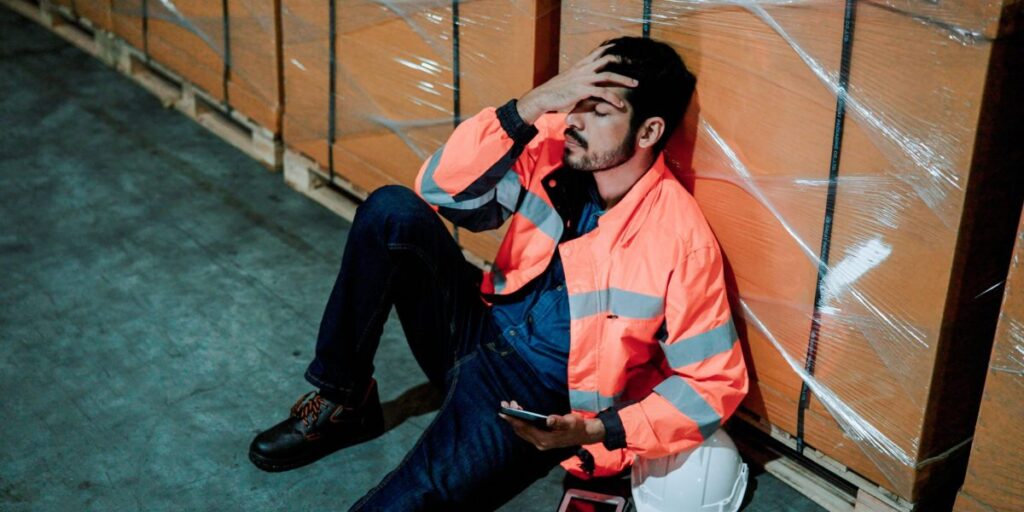Gen Z is ditching college for ‘more secure’ trade jobs—but building inspectors, electricians and plumbers actually have the worst unemployment
Trade jobs have been rebranded as a shortcut to six-figure salaries, without student debt, and immunity from automation. But Gen Z could be walking into a trap.


Trade jobs are having a moment. Touted as the smarter, safer alternative to “irrelevant” overpriced degrees and entry level white-collar jobs (which tech CEOs warn could soon to be swallowed by AI), traditional manual work is experiencing a resurgence among Gen Z.
Around 78% of Americans say they’ve noticed a spike in young people turning to jobs like carpentry, electrical work and welding, according to a 2024 Harris Poll for Intuit Credit Karma. They’re not wrong. Trade school enrollment really has been surging post-pandemic, even outpacing university enrollment.
And it makes sense: six-figure salaries without student loans, the freedom to work for yourself, and hands-on, real-world skills that can’t be outsourced to a chatbot. But new research suggests that the reality isn’t as stable—or as future-proof—as it’s being pitched.
According to a new WalletHub study ranking the best and worst entry-level U.S. jobs in 2025, trade roles dominate the bottom of the list. Welders, automotive mechanics, boilermakers, and drafters all rank among the least promising career starters.
Worse still, jobs like building inspectors, electricians, and plumbers are tied to the highest unemployment rate in the entire study at 7.2%—more than three times that of entry-level office jobs like budget analysts or financial analysts, which sit closer to 2.0%.
The 10 worst entry-level jobs
- Welder
- Computer Numeric Control Machine Programmer
- Mechanical Drafter
- Automotive Mechanic
- Boilermaker
- Emergency Dispatcher
- Architectural Drafter
- Telecommunications Technician
- Benefits Administrator
- Tool and Die Maker
According to the researchers, these roles scored poorly due to limited job availability and weak growth potential, as well as their potentially hazardous nature.
Plus, while you’d assume the physical nature of trade work makes them immune to automation, WalletHub’s analyst Chip Lupo tells Fortune that the data shows they’re also vulnerable.
“New technologies like prefabrication and robotics are starting to take over parts of the workload, which can reduce demand,” Lupo explained.
Just like office workers who are experiencing mass layoffs and are at the mercy of recessions, rate hikes, and demand, so too are tradies.
“Trade jobs are closely tied to industries like construction and manufacturing, which means they are sensitive to changes in the economy. When these industries slow down, projects often get delayed or canceled, which can lead to job losses,” Lupo added.
“On top of that, some trade jobs are seasonal, which means that bad weather or off-peak months can dry up construction and maintenance work for several weeks.”
But there is one trade job that stands out for its stability amid the chaos: Geotechnical engineers, mine engineers and drilling engineers have the longest median tenure with their employers—2.1 times higher than that of industrial designers, interior designers, PR specialists, technical writers, and web writers, which rank among the shortest.
A reality check: Tradies are also among the unhappiest workers
Of course, not everyone is becoming a tradie for the money. Gen Zers previously told Fortune that a key element is having the freedom to be their own boss and not be chained to a desk.
But in reality, it might not actually make them happier than a nine-to-five office job. That’s because those freedoms come at a cost: long hours and manual work.
Another study ranked electricians as the least happy workers of all. According to the research, the physically demanding nature of the job and 40-plus hour workweeks weren’t made up for by the just “decent” salary.
Construction workers, warehouse managers, and construction project managers also made the list of unhappiest jobs for having “unpredictable hours,” topped with their roles being stressful and taxing. Alarmingly, not a single trade job made the list of happiest jobs.
Have you gone down the traditional trade jobs route and now regret it? Fortune wants to hear from you. Get in touch: [email protected]






